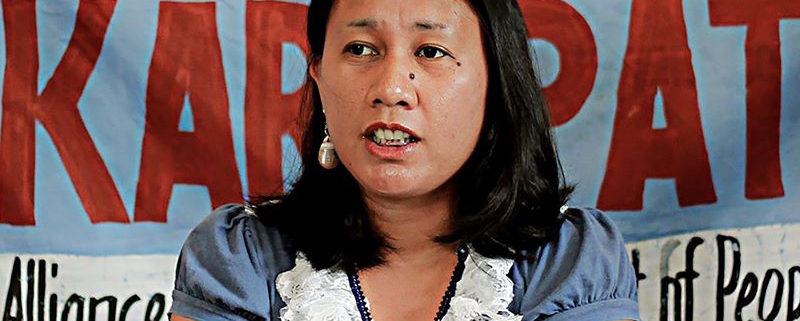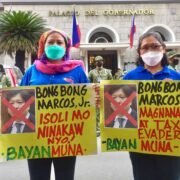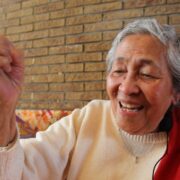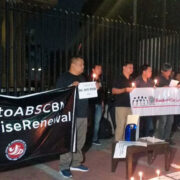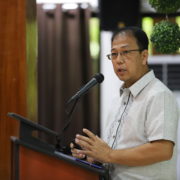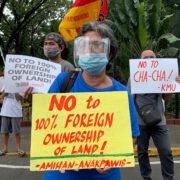Rights group links former officer’s disappearance to military
Karapatan Southern Mindanao Region (SMR) said the disappearance of its former secretary general is linked to the intensifying crackdown on activists and the victim’s past experiences of harassment and red-tagging by the military.
In calling for the “surfacing” of human rights defender Honey Mae Suazo who has been missing since November 2, Karapatan SMR raised the possibility of the military’s involvement in what they suspect is a case of abduction.
“Honey May has been with Karapatan for five years. In that period, she was subjected to multiple threats and malicious accusations peddled by the military,” the group’s current secretary general Jay Apiag said in a statement.
“Although, she had left Karapatan, it seems that she still remains a target. If her past experiences of continuous harassment are indicative of anything, it is that Honey May is still facing reprisal for her work as a human rights defender,” he added.
Suazo was Karapatan SMR secretary general from 2011 to 2016. The group said she was subjected to numerous threats, the most recent of which came from Armed Forces of the Philippines (AFP) Deputy Chief of Staff for Civil Military Operations Antonio Parlade.
Karapatan SMR said Brigadier General Parlade accused Suazo of being associated with the Communist Party of the Philippines and New People’s Army (NPA) after she assisted the family of NPA leader Zaldy Cañete to visit the latter who was hospitalized after suffering near-fatal injuries after an encounter in Bukidnon Province.
“As a matter of fact, Honey May Suazo’s photograph and name was viciously appended in the posters hanged in the cities of Butuan and Surigao, April this year, accusing her as a terrorist.” Apiag emphasized.
Apiag said Suazo was merely performing a mandate of a human rights advocacy institution to assist wounded combatants who are accorded protection and right to visitation of families as mandated under the International Humanitarian Law (IHL) of which the Philippine government is a signatory.
“Regardless of what the military is trying to insinuate, assisting families of combatants, including hors de combat, is not illegal or condemnable. They can double check with the IHL provisions or go to the database and briefers provided by the International Committee of the Red Cross if they need a refresher,” Apiag said.
Apiag said that Suazo’s disappearance is with the backdrop of an intensifying crackdown against activists and legitimate people’s organizations.
“With martial law in Mindanao, the repressive machinations led by the National Task Force to End Local Communist Armed Conflict, and implementation of counterinsurgency program Oplan Kapanatagan, attacks against activists like Honey May have become more commonplace, justified by false allegations and smear campaigns,” he said.
Initial investigations
Karapatan SMR said it formed and dispatched an investigation team composed of paralegal after hearing of Suazo’s disappearance and submitted the following
– On the morning of November 2, All Soul’s Day, Suazo visited her
relatives’ graves with her partner, Anelo Pabuaya;
– Following their visit to the cemetery in Panabo, Suazo and her partner were
at a friend’s house in Barangay New Site Gredu. At around 3 in the afternoon,
Suazo decided to go ahead of her partner to return to Davao City;
– A few minutes later, Suazo called her partner saying she realized she had no enough
money for the bus ride and asked Pabuaya to fetch her at Panabo City Hall;
– After a while, Suazo called Pabuaya again, saying she was being tailed by a
white pick-up truck. She asked Pabuaya to immediately come and fetch her.
Pabuaya advised her to go to the nearest police station. When Pabuaya went to
the station, he did not find Suazo. He tried to contact her mobile phone
numbers but all were out of reach.
“Given her background and the widespread targeting of activists, we hold the AFP accountable on Honey May’s disappearance. We demand for the immediate surfacing of Honey May Suazo and to end all attacks of human rights defenders.,” Apiag said. # (Raymund B. Villanueva)

